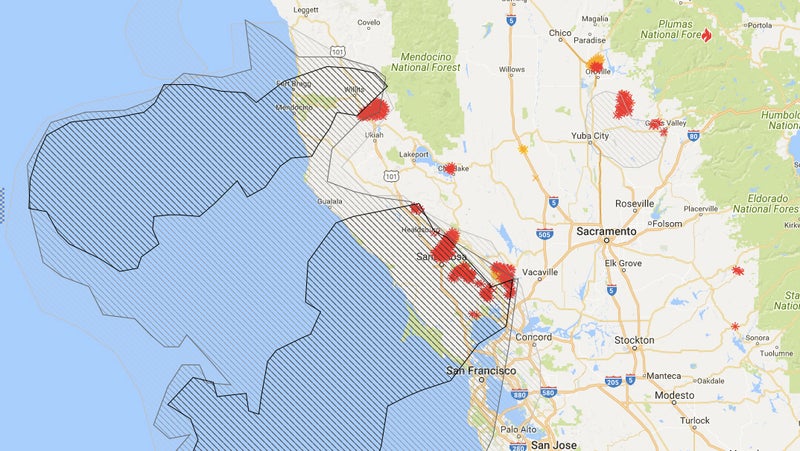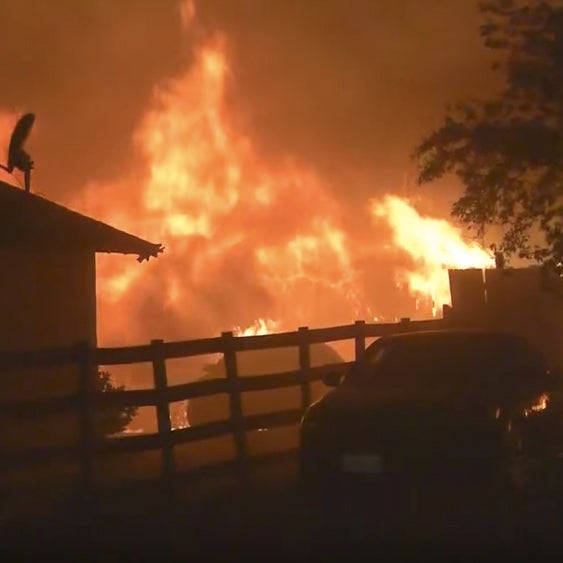One person has died, and over 1,500 structures have burned as 14 wildfires raged overnight in northern California. The devastation prompted Governor Jerry Brown to declare a state of emergency. The nearby San Francisco bay area is blanketed in smoke and ash.╠ř
Update: As of 8 p.m. pacific,╠ř, burned 73,000 acres, left 100,000 people without power, and shut down cell phone service in much of the affected area.╠ř

Hardest hit is Santa Rosa, a city of 175,000 residents in Sonoma County. About 20,000 acres╠řburned there overnight in the Tubbs Fire, which started at 10 p.m.╠řA╠řmandatory evacuation order remains in effect for much of the city. About╠ř.╠ř
Two hospitals in Santa Rosa have also been evacuated. News footage from the scene shows patients being wheeled away from the flames on stretchers.╠ř
Images and video from the city show numerous homes and businesses being destroyed.╠ř
“These fires have destroyed structures and continue to threaten thousands of homes, necessitating the evacuation of thousands of residents,” .╠ř“These fires have damaged and continue to threaten critical infrastructure and have forced the closure of major highways and local roads.”
Brown's state of emergency covers Napa, Sonoma, and Yuba counties, but other fires also started in Lake, Marin, Alameda, and Mendocino counties. The National Guard has sent three medical evacuation helicopters, six firefighting helicopters, and 100 troops to help fight the fires. Other aid from outside agencies started arriving this afternoon.╠ř
The fires started as hot, dry winds swept the area. Gusts were as strong as 74 miles per hour, causing the fires to spread rapidly. California, along with neighboring states, had a very wet winter and spring, leading to booming growth of grass and dry brush. Summer was then very hot and dry, causing all that new growth to dry out. Much of the state is essentially blanketed with tinder. Fires are starting very easily, and the hot, dry winds that occur this time of year are causing them to grow rapidly, too. described last night's disaster as a “firestorm.”
“It was a hell-storm of smoke and ash,” Chris Thomas told . He was visiting Napa for a wine tour when he woke up in his hotel to a strong smell of smoke. A loudspeaker ordered them to evacuate just before the power went out.╠ř
Also at risk are tens of millions of dollars of medical marijuana crops. The counties affected are some of the state's biggest growers. “As damage numbers emerge, it's going to be pretty stunning on all fronts, and certainly our membership has been directly impacted,” ╠řstated.╠ř
This year's fire season has devastated the American West and British Columbia. Currently, the season total stands at . With each additional degree of average temperature exponentially╠řincreasing╠řthe severity of wildfires, events like last night are only going to become more common.╠ř


